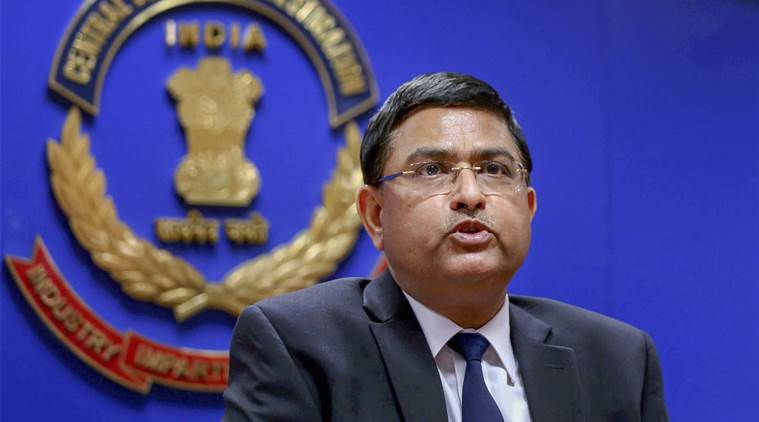 The CBI registered an FIR against Asthana on the basis of a complaint from Hyderabad-based businessman Satish Babu Sana, facing investigation in a 2017 case involving meat exporter Moin Qureshi.
The CBI registered an FIR against Asthana on the basis of a complaint from Hyderabad-based businessman Satish Babu Sana, facing investigation in a 2017 case involving meat exporter Moin Qureshi.
A CBI court on Saturday took cognizance of the CBI’s chargesheet in a bribery case in which the agency’s former special director Rakesh Asthana was given a clean chit.
Special Judge Sanjeev Aggarwal said, “There is no sufficient ground to proceed against Rakesh Asthana and DSP Devender Kumar. We will see if anything comes in future investigation being conducted by the CBI.”
The CBI registered an FIR against Asthana on the basis of a complaint from Hyderabad-based businessman Satish Babu Sana, facing investigation in a 2017 case involving meat exporter Moin Qureshi. Sana’s allegations of bribery against Asthana triggered a war within the CBI, particularly between then director Alok Verma and his number two, Asthana.
The chargesheet, filed on February 11, had only arraigned alleged middleman Manoj Prasad as accused. Asthana and CBI DSP Devender Kumar, who was arrested in 2018 and later got bail, were named in column 12 of the chargesheet since there was not enough evidence to make them accused.
The court took cognizance of the chargesheet and said there are “sufficient grounds to proceed against accused Manoj, his brother Someshwar Prasad and father-in-law Sunil Mittal.”
The court has now summoned both Someshwar and Mittal and asked them to appear on April 13.
The court took cognizance of the offences under IPC Sections 120B (criminal conspiracy) read with 420 (cheating), 385 (extortion), and Sections 7 (expecting to be a public servant) and 8 (taking gratification) of the Prevention of Corruption Act.